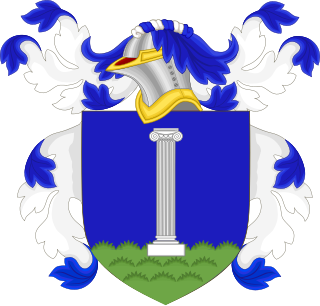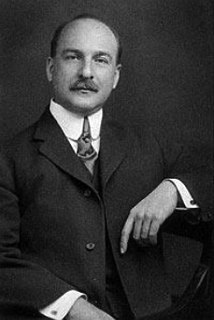
Nylon is a generic designation for a family of synthetic polymers composed of polyamides. Nylon is a thermoplastic silky material that can be melt-processed into fibers, films, or shapes. Nylon polymers can be mixed with a wide variety of additives to achieve many different property variations. Nylon polymers have found significant commercial applications in fabric and fibers, in shapes, and in films.

The Marihuana Tax Act of 1937, Pub.L. 75–238, 50 Stat. 551, enacted August 2, 1937, was a United States Act that placed a tax on the sale of cannabis. The H.R. 6385 act was drafted by Harry Anslinger and introduced by Rep. Robert L. Doughton of North Carolina, on April 14, 1937. The Seventy-fifth United States Congress held hearings on April 27, 28, 29th, 30th, and May 4, 1937. Upon the congressional hearings confirmation, the H.R. 6385 act was redrafted as H.R. 6906 and introduced with House Report 792. The Act is now commonly referred to, using the modern spelling, as the 1937 Marijuana Tax Act. This act was overturned in 1969 in Leary v. United States, and was repealed by Congress the next year.

Pierre Samuel du Pont de Nemours was a French-American writer, economist, publisher and government official. During the French Revolution, he, his two sons and their families immigrated to the United States.
E. I. du Pont de Nemours and Company, commonly referred to as DuPont, was an American company that was founded in July 1802 in Wilmington, Delaware, as a gunpowder mill by French-American chemist and industrialist Éleuthère Irénée du Pont de Nemours.

Neoprene is a family of synthetic rubbers that are produced by polymerization of chloroprene. Neoprene exhibits good chemical stability and maintains flexibility over a wide temperature range. Neoprene is sold either as solid rubber or in latex form and is used in a wide variety of applications, such as laptop sleeves, orthopaedic braces, electrical insulation, liquid and sheet-applied elastomeric membranes or flashings, and automotive fan belts.

Éleuthère Irénée du Pont de Nemours was a French-American chemist and industrialist who founded the gunpowder manufacturer E. I. du Pont de Nemours and Company. His descendants, the du Pont family, have been one of America's richest and most prominent families since the 19th century, with generations of influential businessmen, politicians and philanthropists.

Aramid fibers are a class of heat-resistant and strong synthetic fibers. They are used in aerospace and military applications, for ballistic-rated body armor fabric and ballistic composites, in marine cordage, marine hull reinforcement, and as an asbestos substitute. The name is a blend of "aromatic polyamide".

Du Pont Motors was founded by E. Paul du Pont to produce marine engines for the Allied nations during World War I. After the war, the Du Pont Motor Company produced extremely high-end automobiles. The cars were manufactured in Wilmington, Delaware.

The Du Pont family is a prominent American family descended from Pierre Samuel du Pont de Nemours (1739–1817). It has been one of the richest families in the United States since the mid-19th century, when it founded its fortune in the gunpowder business. In the late 19th and early 20th centuries, it expanded its wealth through the chemical industry and the automotive industry, with substantial interests in the DuPont company, General Motors, and various other corporations.

Pierre Samuel du Pont was an American entrepreneur, businessman, philanthropist and member of the prominent du Pont family.
Artificial leather, also called synthetic leather, is a material intended to substitute for leather in upholstery, clothing, footwear, and other uses where a leather-like finish is desired but the actual material is cost-prohibitive or unsuitable. Artificial leather is known under many names, including "leatherette", "faux leather", "vegan leather", "PU leather" and "pleather".

Thomas Coleman du Pont was an American engineer and politician, from Greenville, Delaware. He was President of E. I. du Pont de Nemours and Company, and a member of the Republican Party who served parts of two terms as United States Senator from Delaware.

Alfred Irénée du Pont was an American industrialist, financier, philanthropist and a member of the influential Du Pont family.
Francis Irénée du Pont was an American chemist, and manager at the E.I. du Pont de Nemours Company. He was the great grandson of its founder, Eleuthère Irénée du Pont.

Toray Industries, Inc. is a multinational corporation headquartered in Japan that specializes in industrial products centered on technologies in organic synthetic chemistry, polymer chemistry, and biochemistry.
Classical guitar strings are strings manufactured for use on classical guitars. While steel-string acoustic guitar strings and electric guitar strings are made of metal, modern classical guitar strings are made of nylon and nylon wound with wire, which produces a different sound to the metal strings. Classical guitar strings were originally made with animal intestine and silk wound with animal intestine up until World War II, when war restrictions led Albert Augustine Ltd. to develop nylon strings. Nylon guitar strings were put into production in 1948. Strings made from fluorocarbon polymers have since been developed and are the main alternative to nylon strings.
Hercules, Inc., was a chemical and munitions manufacturing company based in Wilmington, Delaware, incorporated in 1912 as the Hercules Powder Company following the breakup of the Du Pont explosives monopoly by the U.S. Circuit Court in 1911. Hercules Powder Company became Hercules, Inc. in 1966, operating under this name until 2008, when it was merged into Ashland Inc.

From 1802 to 1921, Eleutherian Mills was a gunpowder mill site used for the manufacture of explosives by the Du Pont family business, which was founded by Eleuthère Irénée du Pont. The name also refers to the house on the hill above the mills, which was the first Du Pont family home in America. In 1952, the site became an outdoor museum, and the Hagley Museum and Library was founded. The site was declared a National Historic Landmark in 1966.
Krebs Pigments and Chemical Company was founded in 1902 by Henrik J. Krebs and was a manufacturer of lithopone and titanium dioxide.












